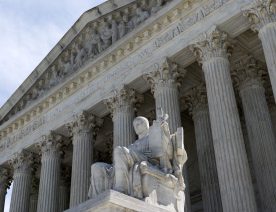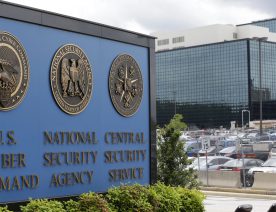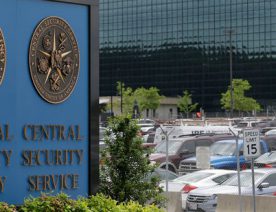
June 8, 2023
The public is split over whether it is acceptable for the government to take away some rights and freedoms to fight terrorism. There is continued opposition to warrantless surveillance of phone calls and emails both within the United States and outside the country.
About half of the public think it is sometimes necessary for the government to sacrifice some rights and freedoms to fight terrorism, while 50% do not. Approval for sacrificing individuals’ freedoms is at an all-time low since July 2011 when 64% of the public approved of giving up freedoms to fight terrorism. Democrats are more likely (55%) than Republicans (44%) or independents (42%) to support sacrificing rights and freedoms to fight terrorism.
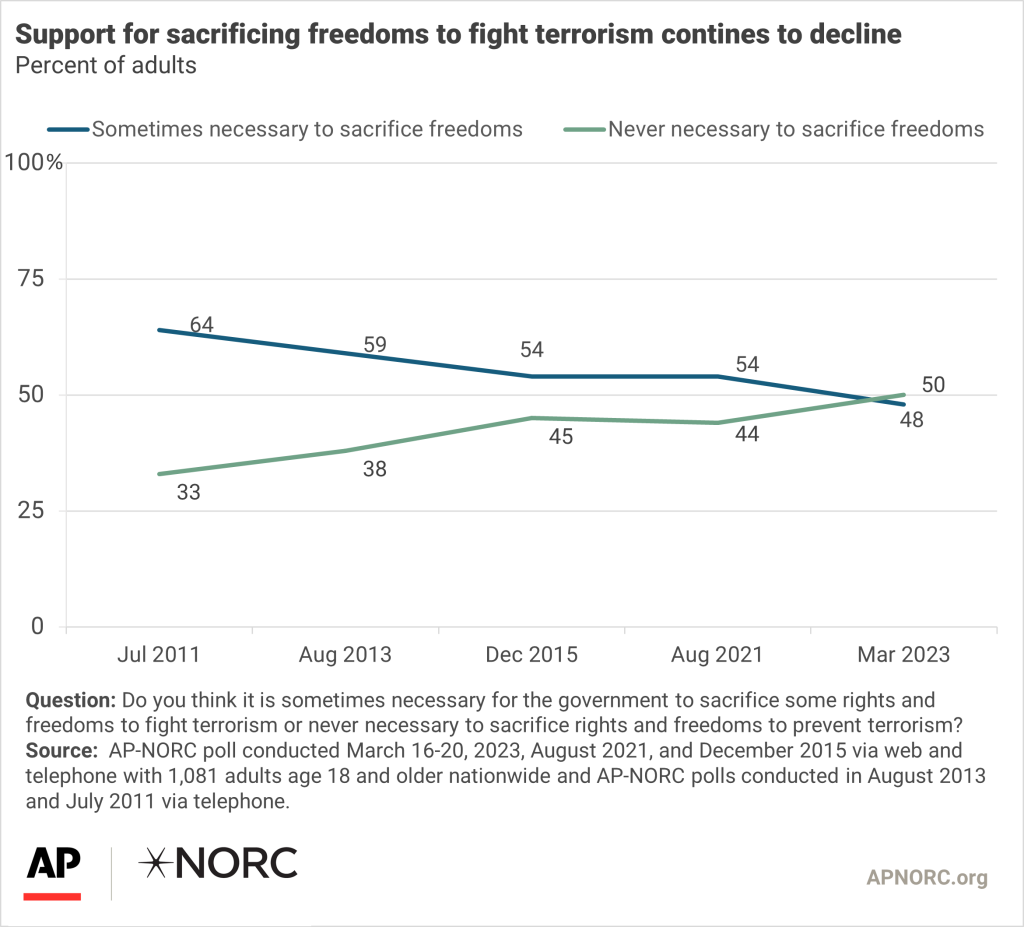
Support for warrantless communication surveillance in response to threats against the United States is low. Less than a third of adults support warrantless government monitoring of internet searches, phone calls, or emails outside the United States. Even fewer favor monitoring texts, emails, or phone calls within the United States. Support for all types of communication surveillance has declined since initially asked by AP-NORC in 2011.
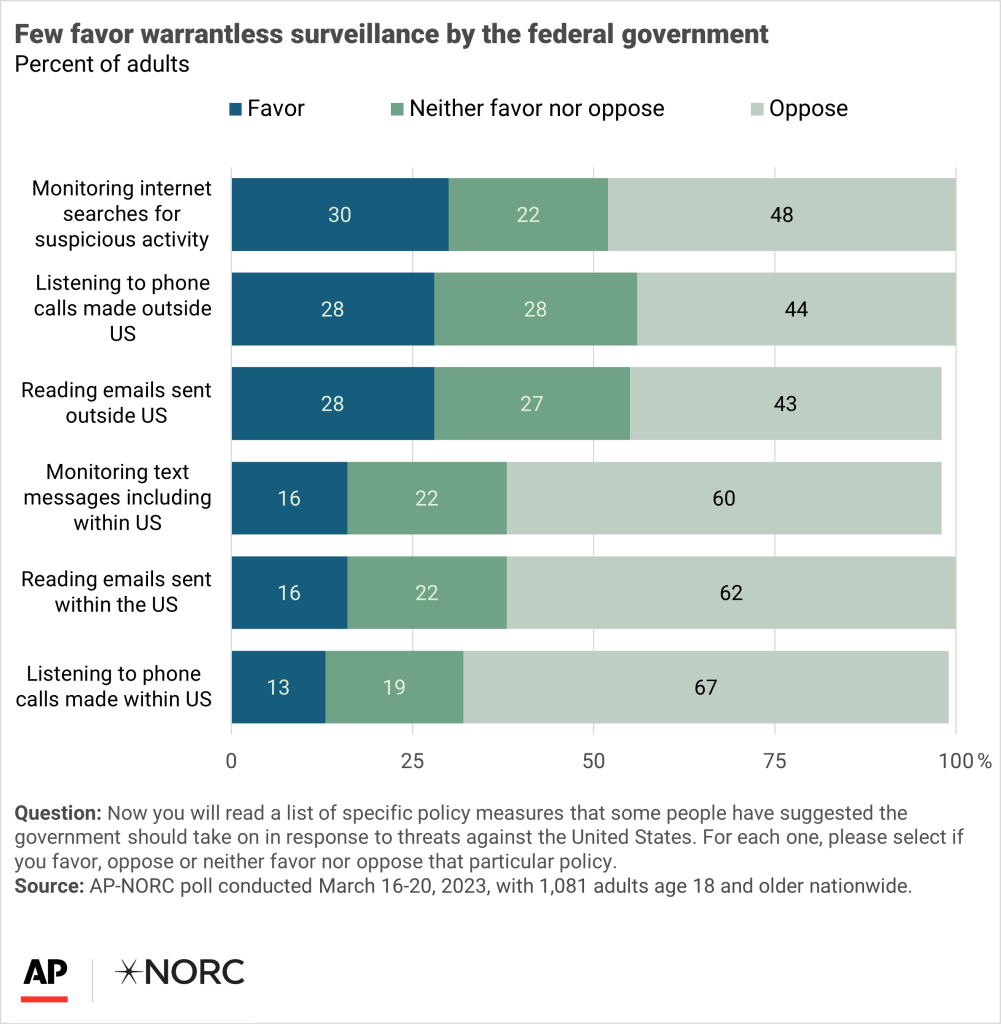
More adults favor than oppose Edward Snowden’s release of information about how the United States collects intelligence data. However, nearly half of the public have no opinion about the matter.
There are no partisan differences over Snowden’s actions. But support is higher among younger adults.
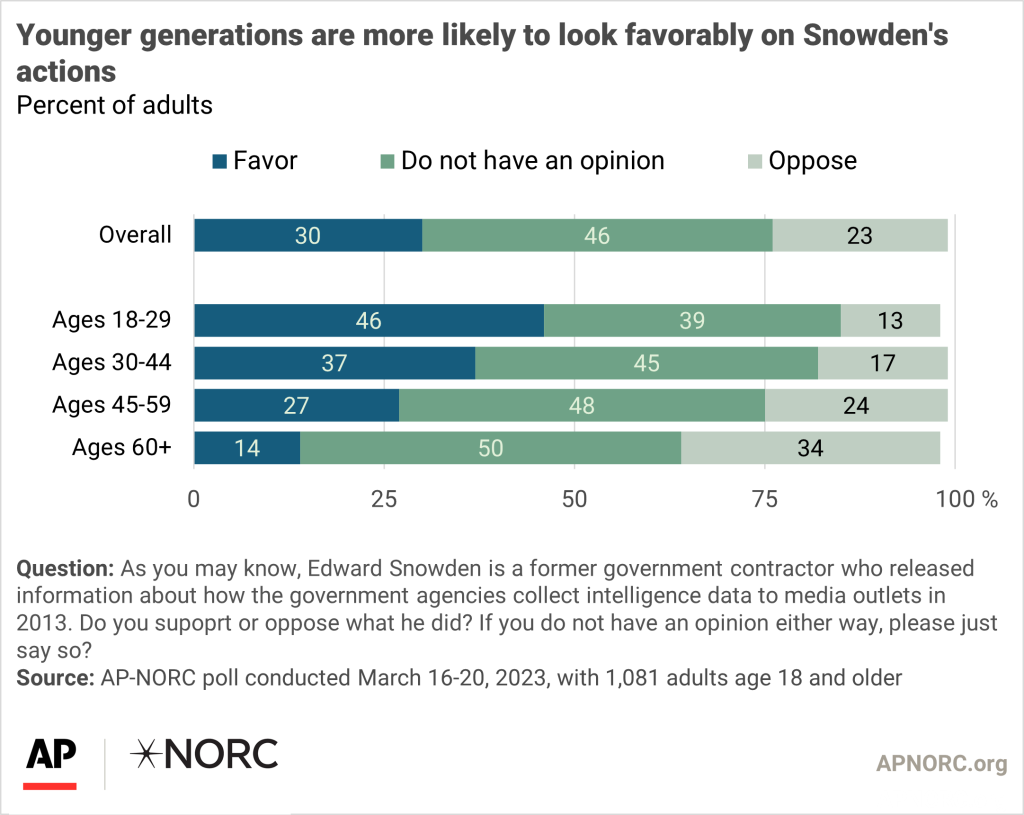
Confidence in the country’s intelligence gathering agencies is low. Eighteen percent of the public have a great deal of confidence in the people who run the country’s intelligence agencies, 49% have some confidence, and 31% have hardly any confidence.
The survey was conducted before a Massachusetts Air National Guard member was arrested in April in connection with the disclosure of highly classified military documents about the Ukraine war and other top national security issues. This breach raised questions about the country’s ability to safeguard its secrets.
To assess if the document leak affected the public’s view of the U.S. intelligence gathering agencies, the question about confidence in people who manage intelligence organizations was repeated in May. There was no significant difference in the results found before the military documents were disclosed and after.
The nationwide poll was conducted March 16-20, 2023 using the AmeriSpeak® Panel, the probability-based panel of NORC at the University of Chicago. Online and telephone interviews using landlines and cell phones were conducted with 1, 081 adults. The margin of sampling error is +/- 4.0 percentage points.
Suggested Citation: AP-NORC Center for Public Affairs Research. (March 2023). “https://apnorc.org/projects/the-public-is-divided-on-whether-sacrificing-some-rights-is-needed-to-fight-terrorism/(opens in a new tab)”





